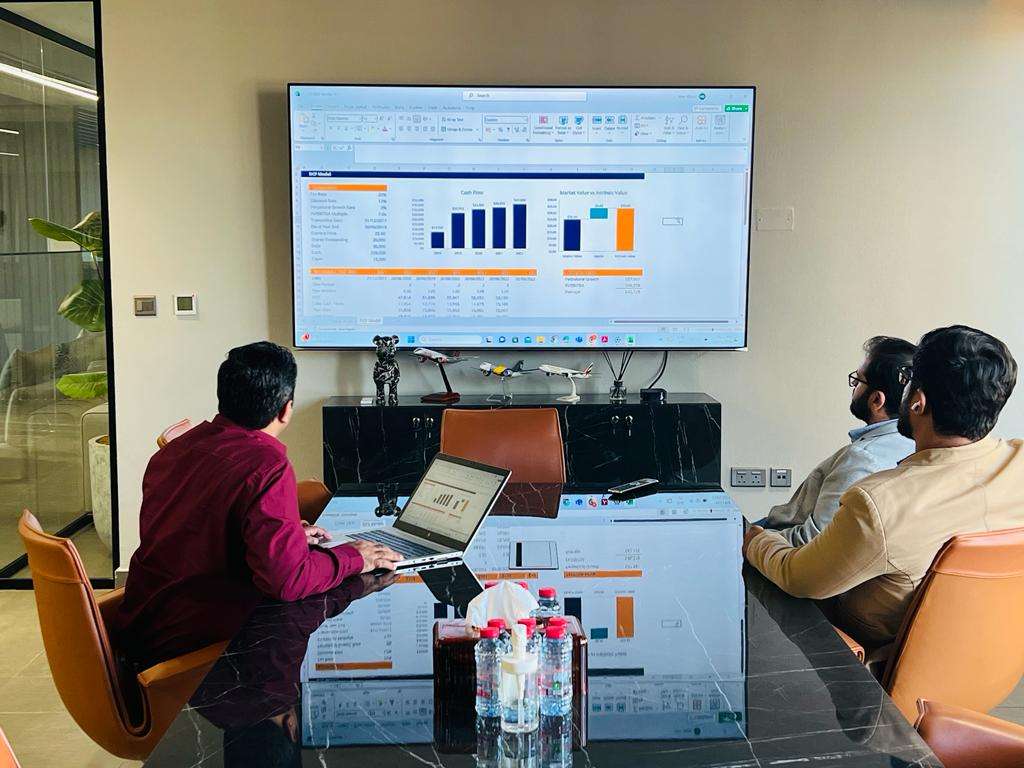Economic Substance Regulation (ESR) Consulting Services
The UAE has implemented the Economic Substance Regulations (ESR) to guarantee that enterprises involved in specific activities exhibit adequate economic substance within the country, in keeping with its commitment to comply with international tax standards established by the OECD and the European Union. High fines, financial risks, and damaged reputations may arise from noncompliance. To assist companies in dealing with these rules and maintaining complete compliance, ALIF Accounting and Tax Consultant offers thorough ESR consulting services.

ALIF Accounting and Tax Consultants offers thorough ESR consulting services, To assist companies in dealing with these rules and maintaining complete compliance,
ESR Requirements and Compliance
Economic Substance Test
Demonstrating that the company has adequate employees, physical presence, management, and operating expenditure in the UAE.
Annual Reporting
Filing an annual Economic Substance Report and notification to the regulatory authority, outlining the company’s compliance with the ESR requirements.
Demonstration of Core Income-Generating Activities (CIGA)
Ensuring that relevant activities are conducted in the UAE, and the necessary economic substance is demonstrated.
The Economic Substance Regulation (ESR) was introduced in the UAE in 2019 to ensure that entities conducting specific types of business activities have substantial activities and operations within the country. The ESR applies to various industries and business activities, including banking, insurance, investment funds, intellectual property, shipping, holding companies, and more.
The objective of ESR is to prevent businesses from artificially shifting profits to jurisdictions with low or no taxation without genuine economic activity. For companies that fall under the scope of ESR, it’s crucial to demonstrate that they have a real economic presence and substance in the UAE by adhering to specific compliance requirements.
Who Does ESR Apply To?
The UAE’s ESR applies to any company or legal entity engaged in one or more of the following Relevant Activities
Banking businesses
Lease-Finance businesses
Insurance businesses
Investment Fund Management businesses
Headquarters businesses
Shipping businesses
Holding Companies
Intellectual Property businesses
Why Choose ALIF Accounting and Tax Consultants for ESR Consulting?
Choosing ALIF Accounting and Tax Consultants for your ESR compliance needs ensures that your business is equipped with the knowledge, tools, and strategies necessary to meet the stringent requirements of the Economic Substance Regulations.
Customized Solutions
We provide tailored ESR compliance strategies based on your company’s specific industry, size, and business model.
Expertise
Our team of ESR consultants has in-depth knowledge of UAE regulations and international tax standards, ensuring you stay compliant.
End-to-End Support
From the initial assessment to ongoing compliance monitoring, we offer complete ESR services to safeguard your business.
Timely Reporting
We ensure all ESR filings and notifications are completed accurately and submitted on time, avoiding costly penalties.
Ensure Compliance and Avoid Penalties
With the UAE’s Economic Substance Regulations in place, it is essential for businesses engaged in Relevant Activities to meet the compliance requirements. Failing to do so can result in significant financial penalties, legal issues, and reputational damage. At ALIF Accounting and Tax Consultants, we provide comprehensive ESR solutions to help your business stay compliant, protect your interests, and thrive in the UAE market.
FAQs
Setting up an accounting system can vary in time depending on factors such as the complexity of your business operations, the number of accounts, and the level of integration required. On average, it can take anywhere from a few days to several weeks to complete the setup process. The team of Alif Accounting and Tax consultants will evaluate your system and provide recommendation based on the requirements and complexity of the System.
Key considerations include:
Compatibility:
Ensure that the accounting system and other software are compatible with each other and can synchronize data effectively.
Data Mapping:
Clearly define how data will be shared and mapped between systems to avoid any inconsistencies or errors.
Automation:
Assess the level of automation available for data synchronization to streamline processes and reduce manual entry.
Security:
Ensure that data encryption and user access controls are in place to protect sensitive financial information.
Accurate Financial Reporting:
An accounting system helps you generate financial statements, monitor cash flow, and track expenses, ensuring accurate reporting for compliance and decision-making.
Time and Cost Savings:
Automation of processes such as invoicing, payroll, and expense tracking reduces manual effort, leading to time and cost savings.
Improved Decision-making:
Real-time visibility into financial data helps business owners make informed decisions, identify areas for improvement, and plan future strategies.
Enhanced Data Organization:
An accounting system streamlines data entry, categorization, and storage, making it easier to retrieve and analyze financial information.
Yes, it is possible to migrate data from your existing accounting system to a new one during integration. However, the feasibility and process can vary depending on the systems involved. It is recommended to consult with your new accounting software provider or expert team of Alif Accounting and Tax Consultants to ensure a smooth transition. We can guide you through the data migration process, provide tools or services to assist with the transfer, and help verify the accuracy of the migrated data to avoid any inconsistencies.

